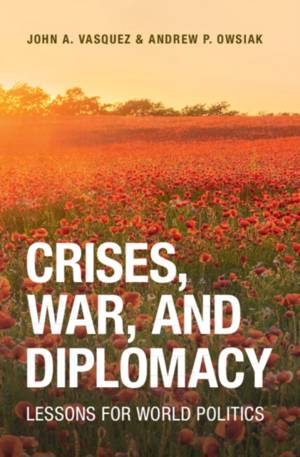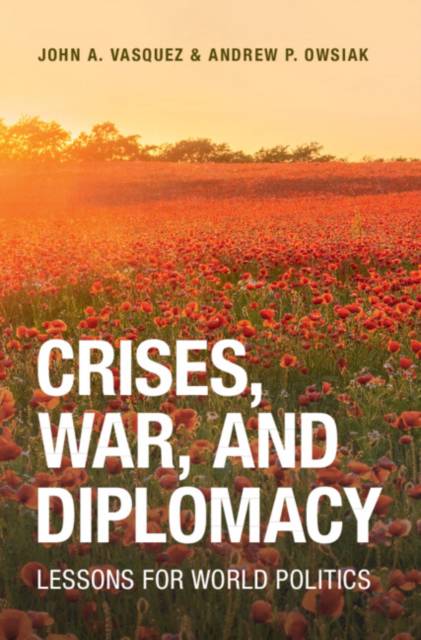
Bedankt voor het vertrouwen het afgelopen jaar! Om jou te bedanken bieden we GRATIS verzending (in België) aan op alles gedurende de hele maand januari.
- Afhalen na 1 uur in een winkel met voorraad
- In januari gratis thuislevering in België
- Ruim aanbod met 7 miljoen producten
Bedankt voor het vertrouwen het afgelopen jaar! Om jou te bedanken bieden we GRATIS verzending (in België) aan op alles gedurende de hele maand januari.
- Afhalen na 1 uur in een winkel met voorraad
- In januari gratis thuislevering in België
- Ruim aanbod met 7 miljoen producten
Zoeken
Crises, War, and Diplomacy
Lessons for World Politics
John A Vasquez, Andrew P Owsiak
Hardcover | Engels
€ 194,95
+ 389 punten
Uitvoering
Omschrijving
Why do some international crises between major states escalate to war while others do not? To shed light on this question, this book reviews fifteen such crises during the period 1815-present, including the Crimean War, The Franco-Prussian War, the Cuban Missile Crisis, and the 2022 Russia-Ukraine War. Each chapter places the crisis at hand in its historical context, provides a narrative of the case's events that focuses on the decision-makers involved, theoretically analyses the case's outcome in light of current research, and inductively draws some lessons from the case for both scholars and policymakers. The book concludes by exploring common patterns and drawing some broader lessons that apply to the practice of diplomacy and international relations theory. Integrating qualitative information with the rich body of quantitative research on interstate war and peace, this unique volume is a major contribution to crisis diplomacy and war studies.
Specificaties
Betrokkenen
- Auteur(s):
- Uitgeverij:
Inhoud
- Aantal bladzijden:
- 486
- Taal:
- Engels
Eigenschappen
- Productcode (EAN):
- 9781009652094
- Verschijningsdatum:
- 20/11/2025
- Uitvoering:
- Hardcover
- Formaat:
- Genaaid
- Afmetingen:
- 152 mm x 229 mm
- Gewicht:
- 816 g

Alleen bij Standaard Boekhandel
+ 389 punten op je klantenkaart van Standaard Boekhandel
Beoordelingen
We publiceren alleen reviews die voldoen aan de voorwaarden voor reviews. Bekijk onze voorwaarden voor reviews.









